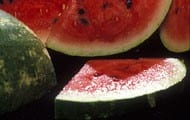 Food recalls happen almost daily and many do not get a lot of publicity. In a majority of recalls, it is the manufacturer that issues a voluntary recall.
Food recalls happen almost daily and many do not get a lot of publicity. In a majority of recalls, it is the manufacturer that issues a voluntary recall.
Manufacturers will work with the FDA or USDA to help determine the reason for the recall and to fix the issue. If foodborne illnesses have occurred, the CDC and state health departments will also be involved.
As consumers, it is important to pay attention to recalls to eliminate the chance of getting sick. Recall announcements give specific information about the food recall including the type of food, brand, package size, date codes, manufacturer codes, shelf life dates, distribution locations, and other pertinent information.
If you have a recalled food, take it back to where it was purchased for a refund, or throw it away. Do not take the chance of eating it or feeding it to animals.
Learn more at www.foodsafety.gov/recalls/index.html.
By: Ashley Svaty
 This summer, pre-cut melons were recalled due to Salmonella contamination. This included pre-cut cantaloupe, watermelon, and a fruit salad mix sold in grocery stores in nine states. While Salmonella is usually connected to meat, poultry, or eggs, it may seem unusual for melons. But, melons are not like many other fruits.
This summer, pre-cut melons were recalled due to Salmonella contamination. This included pre-cut cantaloupe, watermelon, and a fruit salad mix sold in grocery stores in nine states. While Salmonella is usually connected to meat, poultry, or eggs, it may seem unusual for melons. But, melons are not like many other fruits.